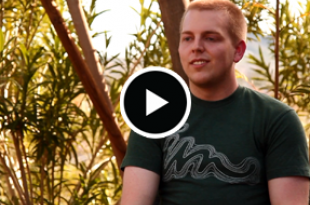Still Hiding in the Shadows: Is Social Anxiety Real?
In 2000, in the midst of the big pharmaceutical television barrage, when the big pharmaceutical companies tried to sell antidepressants to everyone with an anxiety problem, the general public began to sit up and take notice. Social anxiety disorder? No one had heard of that before. Was it something real, or was it something the big pharmaceutical companies were promoting to sell more of their new SSRI drugs?
Some people thought this was a ridiculous diagnosis. "You mean being shy is now a disorder?" This was a theme of many general articles in the early years of the century, and it had the temporary effect of making the general public skeptical of this "new" anxiety disorder.
Many people refused to believe it existed. "I've never met anyone with these symptoms," they said.
Meanwhile, through government epidemiological data, we found out that social anxiety disorder was actually the third largest mental health disorder -- of any kind. Alcoholism was first, depression was second, and social anxiety was third.
According to the definition in the DSM-IV, social anxiety had devastating effects on people's lives. Left untreated, it restricted people from almost all the things they wanted to do in life, and had devastating long-term effects, such as high rates of unemployment and substance abuse. Low rates of friendships and relationships were recorded.
Where were all these millions of people?
I had this horrible disorder myself, and never ran into any else like me.
Why?
Maybe there was a common-sense reason the general public didn't understand social anxiety disorder.
I was shy, inhibited, worried about everything, and shunned the spotlight. If someone had asked me questions about "social anxiety disorder" I would have avoided them, or run away from them. I didn't want any attention on me. I didn't want to feel so vulnerable, open, so raw, so exposed.
When I had social anxiety disorder, everything about my life was a mess, and I wasn't able to tell even one person about these fears and worries. The times I tried to tell people did not go well. They could not accept what I was telling them. It was too foreign to their own life and their own experiences. Most people were stone-faced and didn't comment. Some people thought I was making things up.
"Life can't be that bad, can it?"
So, I learned to keep my mouth shut and suffer in silence. I suffered great amounts of anxiety each and every day of my life for over twenty-five years, most of the time hiding it very well from others.
Maybe that's why no one had ever heard of social anxiety and no one wanted to believe it existed.
Progress has been made in the last decade. Most clinicians (about 75% now) can diagnose social anxiety disorder appropriately. Research is now plentiful. People with social anxiety have "gotten together" with each other because of technological advances -- mainly through the internet.
Still, few treatment centers exist and there are even fewer success stories of people overcoming social anxiety.
Research and our clinical knowledge tell us how to overcome social anxiety. Thankfully, some people's lives are being transformed today.
How do we get the message out to everyone else?
How many people, when they get the message, will do anything about it? The "cure" has to be through permanent changes in the brain, and some people may not like the fact that it takes effort and persistence to get over this disorder, since the brain itself must be changed.
Luckily, I know that almost everyone with social anxiety who comes to see me is serious about overcoming this disorder. They will commit to the time and patience it takes to get better. I believe that if people could understand what social anxiety truly is, we would make much faster progress against this silent, yet deadly, destroyer of lives.
It can't get more real than that.
-- Thomas A. Richards, Ph.D., Psychologist
Citations and references for articles and information



